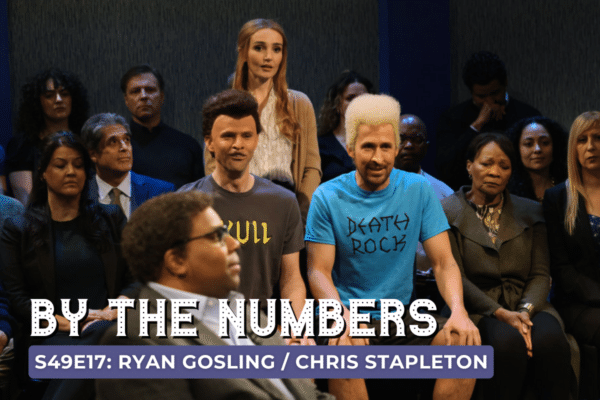
Over its half-century run, Saturday Night Live has inevitably booked some problematic hosts, including Andrew Dice Clay, (misogynist humor); Rudy Giuliani (illegal campaign activities); Robert Blake (tried for murder); Elon Musk (general insufferability and dalliance with neo Nazis) and Donald Trump (attempted overthow of the US government.)
And then there’s O.J. Simpson, who hosted in 1978, toward the end of his record-setting football career, and went on to be very credibly accused of double murder.
Though erased forever from the list of prospective return hosts, Simpson managed to make almost innumerable later appearances on the show, when Norm Macdonald used his position as anchor of “Weekend Update” to pound on Simpson mercilessly for being a vicious murderer (despite his subsequent acquittal).
According to Norm, his quest for humor (and justice) wound up getting him fired from the show. He said the late NBC West Coast President, Don Ohlmeyer, who was an enduring friend to Simpson, ordered him dropped for his fusillade of O.J. jokes. (Ohlmeyer said Macdonald wasn’t funny.)
What is indisputable is that few subjects have ever driven as many jokes and bits (and controversy) on late-night television as O.J. Simpson, who died Wednesday in Las Vegas.
As far as Macdonald went in his skewering of Simpson, his defense team, the jury, and the facts of the case (and he went really far: “It was revealed this week that defense lawyer Johnnie Cochran once abused his first wife. In his defense Cochran said, ‘At least I didn’t kill her like some people I know.’”), he wasn’t alone on SNL.
The show performed numerous sketches satirizing the trial and its characters including Marisa Tomei reviving her My Cousin Vinnie character to use car expertise to help the defense; Dana Carvey as Johnny Carson joining the defense team; David Spade appearing as Kato Kaelin on “Weekend Update” and many others.
And of course SNL wasn’t the only source for edgy late night jokes and bits surrounding the infamous trial.
Jay Leno, then the new-ish host of The Tonight Show was all about the charges, the investigation, and especially the trial for the better part of a year. As in: “Feuding O.J. Simpson’s attorneys F. Lee Bailey and Robert Shapiro finally buried the hatchet. In fact, they buried it right next to the knife.”
Leno’s comedy ventured well into slapstick, which included his memorable “Dancing Itos” bit (the trial’s judge Lance Ito became a minor celebrity himself thanks to all the air time he got on television) and a song parody of “My Girl” featuring faux Temptations singing “O.J.”
The almost gleeful mockery of the many discursive and bumbling aspects of the trial made for easy comic fodder, but the facts of the case made Leno’s direct rival David Letterman uneasy. Letterman resisted diving into any aspect of the Simpson case for months, even when much of the rest of the comedy world was firing away.
Howard Stern, an enormous Letterman fan, came on Dave’s CBS show only about a week after the car chase and arrest, wearing a football jersey with Simpson’s mugshot on it. He went through a few jokes about Simpson, and got nowhere with making Letterman laugh.
Finally he chided Letterman for being so resistant to joking about the Simpson case. Letterman replied, “Double homicides just don’t crack me up the way they used to”
But his resolve didn’t last. Simpson and the other players starring in the live-on-television trial overwhelmed the culture. Letterman began working Simpson jokes into his monologues. A few days after the verdict he did a bit called “A Day in the Life of O.J. Simpson.”
Along with generating a lot of laughs, late-night shows took some shots from critics for what was labeled the insensitivity shown to the families of the deceased by plundering the case for laughs.
A critic in the Tampa Bay Times cited Simpson trial jokes on Leno and Letterman and asked if they would have been so callous as to make jokes about the Challenger explosion.
Or even if they would have had some fun with the Lindbergh baby kidnapping and murder.
I’m guessing no in both cases, but I wouldn’t rule it out either.
Asking about insensitivity is not an unfair question, though it seems a bit quaint now, given how far the humor went over the Simpson case.
The main target was always O.J. himself, with the underlying theme—sometimes stated overtly—that he was guilty of the heinous crime. (Macdonald’s succinct joke after the verdict: “Well, it’s finally official: Murder is legal in the state of California.”)
Simpson wasn’t going to get far protesting the lampooning. As his shambling life continued to unfold in the years after the trial, he hardly seemed to care what late-night comedians thought of him.
He had survived a much worse fate.
Until Wednesday.











